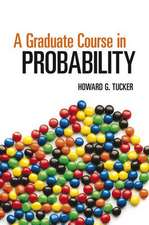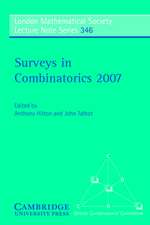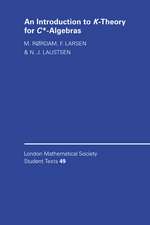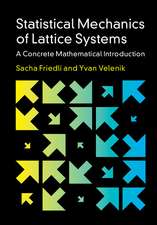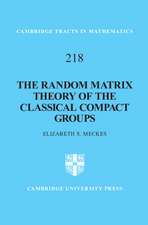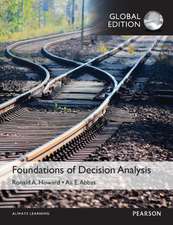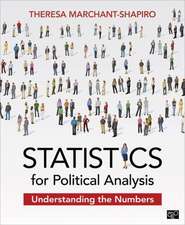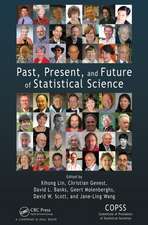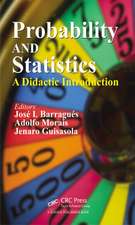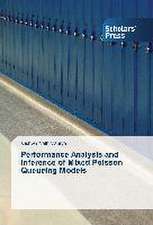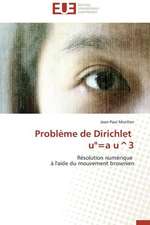Foundations of Multiattribute Utility
Autor Ali E. Abbasen Limba Engleză Hardback – 27 iun 2018
Preț: 602.06 lei
Preț vechi: 743.28 lei
-19% Nou
Puncte Express: 903
Preț estimativ în valută:
115.22€ • 119.85$ • 95.12£
115.22€ • 119.85$ • 95.12£
Carte tipărită la comandă
Livrare economică 09-15 aprilie
Preluare comenzi: 021 569.72.76
Specificații
ISBN-13: 9781107150904
ISBN-10: 1107150906
Pagini: 480
Dimensiuni: 185 x 260 x 35 mm
Greutate: 1.59 kg
Editura: Cambridge University Press
Colecția Cambridge University Press
Locul publicării:New York, United States
ISBN-10: 1107150906
Pagini: 480
Dimensiuni: 185 x 260 x 35 mm
Greutate: 1.59 kg
Editura: Cambridge University Press
Colecția Cambridge University Press
Locul publicării:New York, United States
Cuprins
Part I. Foundations of Preference, Value, and Utility: 1. Preference, value, and utility; 2. Foundations of expected utility; 3. Some flawed methods of decision making; Part II. Deterministic Decisions: 4. The order rule: preferences for deterministic consequences; 5. Getting the attributes right; 6. Preference functions for single attributes; 7. Preference functions for multiple attributes; 8. Additive preference functions; 9. Valuing deterministic consequences – value functions; Part III. Decisions with Uncertainty: Multi-attribute Utility Functions Using a Value Measure: 10. Single-attribute utility function; 11. Multi-attribute utility functions using preference and value functions; 12. Utility functions over additive preference or value functions; Part IV. Decisions with Uncertainty: Properties of Single-Attribute Utility Functions: 13. The role of the utility function in valuing uncertain deals; 14. The risk aversion function; 15. Scale transformations applied to lottery outcomes; 16. The invariant transformation of a utility function; 17. Valuing changes in investment opportunities; 18. One-switch utility functions; 19. Utility transversality; 20. Multi-attribute risk aversion; Part V. Decisions with Uncertainty: Multi-attribute Utility Functions without Preference or Value Functions: 21. Attribute dominance utility; 22. The two-attribute utility tree; 23. Independence conditions for two attributes; 24. The multi-attribute utility tree; 25. Independence conditions for three or more attributes; 26. Higher-order independence conditions; 27. One-switch utility independence; Part VI. Utility Copula Formulations: 28. Multi-attribute utility copulas; 29. Archimedean utility copulas; 30. Assessing Archimedean utility copulas; 31. Utility copula functions matching all boundary assessments; 32. Bidirectional one-switch ordinal copulas; 33. Reflections of what we have learned.
Recenzii
'Ali E. Abbas' new book on utility theory is a comprehensive treatment ranging from simple distinctions about facing uncertainty to general multiattribute utility theory. Beginning with a general approach to MAU, it then specializes to show how popular versions, such as additive utility, are actually very restrictive and other simple approaches, such as additive value functions with risk aversion, are much more general. He derives the complete forms of multiattribute utility functions having additive value functions. With utility transversality, he also demonstrates that there is only one dimension of risk attitude, as the value function translates risk attitude across dimensions. Abbas's book promises to be the standard reference work for decades to come.' Jim Matheson, Chairman and CFO, SmartOrg, Inc.
'Foundations of Multiattribute Utility provides a much-needed update, a comprehensive structure, and indeed a vision for a field that has blossomed in the forty years since Keeney and Raiffa's Decisions with Multiple Objectives. The book synthesizes recent results by others and by the author, including an elegant copula representation. Thanks to the book's accessible style - which even includes Socratic dialogues - readers will appreciate its place within the rich mathematics of preference and economic utility theory and the rich practice of decision analysis. The book offers many rewards for modelers in these fields, while for researchers it is required reading.' Jeffrey M. Keisler, University of Massachusetts, Boston
'The definitive work on preference, value, and utility that can serve the full range of decision situations. If you need to tackle a complex multiattribute preference problem, the answer is in this book. Ali E. Abbas has created a great text of a graduate course and a valuable reference for the practitioner.' Carl Spetzler, Strategic Decisions Group and author of Decision Quality
'In Foundations of Multiattribute Utility, Ali E. Abbas has brought together divergent themes of research in decision-making with multiple objectives into a single, coherent whole. This book can serve as an introduction for decision-makers who want to think carefully about making trade-offs. It is also a reference for researchers who want to understand the latest developments in the field. I know I will be keeping this book close at hand in my office for years to come.' Jason Merrick, Virginia Commonwealth University
'This book is a long overdue. It is encyclopedic in nature, chronicling many recent developments in utility theory, while summarizing the classical results in the field. The book is a perfect companion to Keeney and Raiffa's (1976) seminal book on multiattribute utility. It should be on the desk of any decision analyst, economist, or statistician who does research in or teaches utility theory.' Kenneth C. Lichtendahl, Jr, University of Virginia
'Foundations of Multiattribute Utility provides a much-needed update, a comprehensive structure, and indeed a vision for a field that has blossomed in the forty years since Keeney and Raiffa's Decisions with Multiple Objectives. The book synthesizes recent results by others and by the author, including an elegant copula representation. Thanks to the book's accessible style - which even includes Socratic dialogues - readers will appreciate its place within the rich mathematics of preference and economic utility theory and the rich practice of decision analysis. The book offers many rewards for modelers in these fields, while for researchers it is required reading.' Jeffrey M. Keisler, University of Massachusetts, Boston
'The definitive work on preference, value, and utility that can serve the full range of decision situations. If you need to tackle a complex multiattribute preference problem, the answer is in this book. Ali E. Abbas has created a great text of a graduate course and a valuable reference for the practitioner.' Carl Spetzler, Strategic Decisions Group and author of Decision Quality
'In Foundations of Multiattribute Utility, Ali E. Abbas has brought together divergent themes of research in decision-making with multiple objectives into a single, coherent whole. This book can serve as an introduction for decision-makers who want to think carefully about making trade-offs. It is also a reference for researchers who want to understand the latest developments in the field. I know I will be keeping this book close at hand in my office for years to come.' Jason Merrick, Virginia Commonwealth University
'This book is a long overdue. It is encyclopedic in nature, chronicling many recent developments in utility theory, while summarizing the classical results in the field. The book is a perfect companion to Keeney and Raiffa's (1976) seminal book on multiattribute utility. It should be on the desk of any decision analyst, economist, or statistician who does research in or teaches utility theory.' Kenneth C. Lichtendahl, Jr, University of Virginia
Notă biografică
Descriere
Learn state-of-the-art methods for making logically sound decisions when faced with multiple conflicting objectives and uncertainty.

